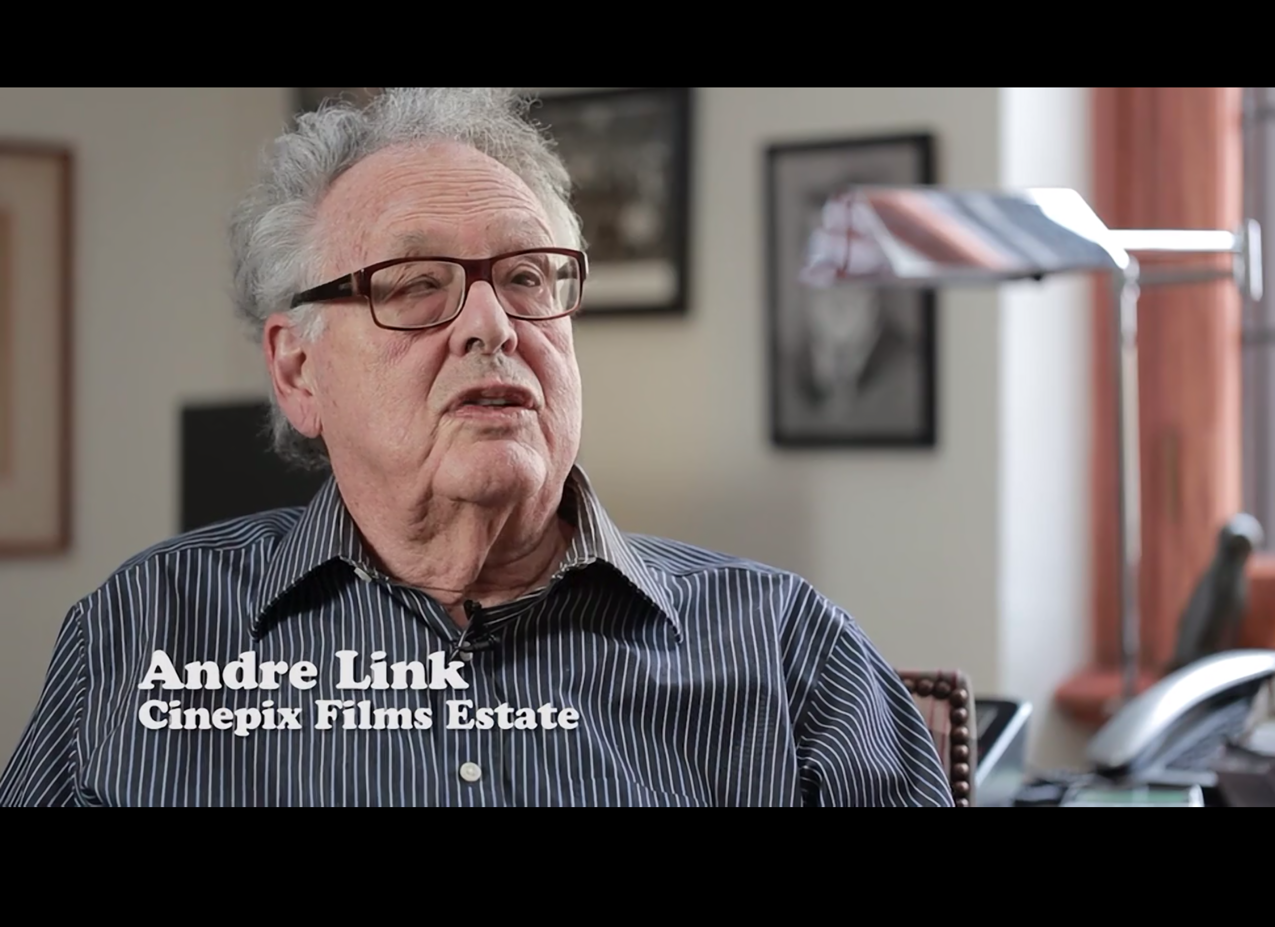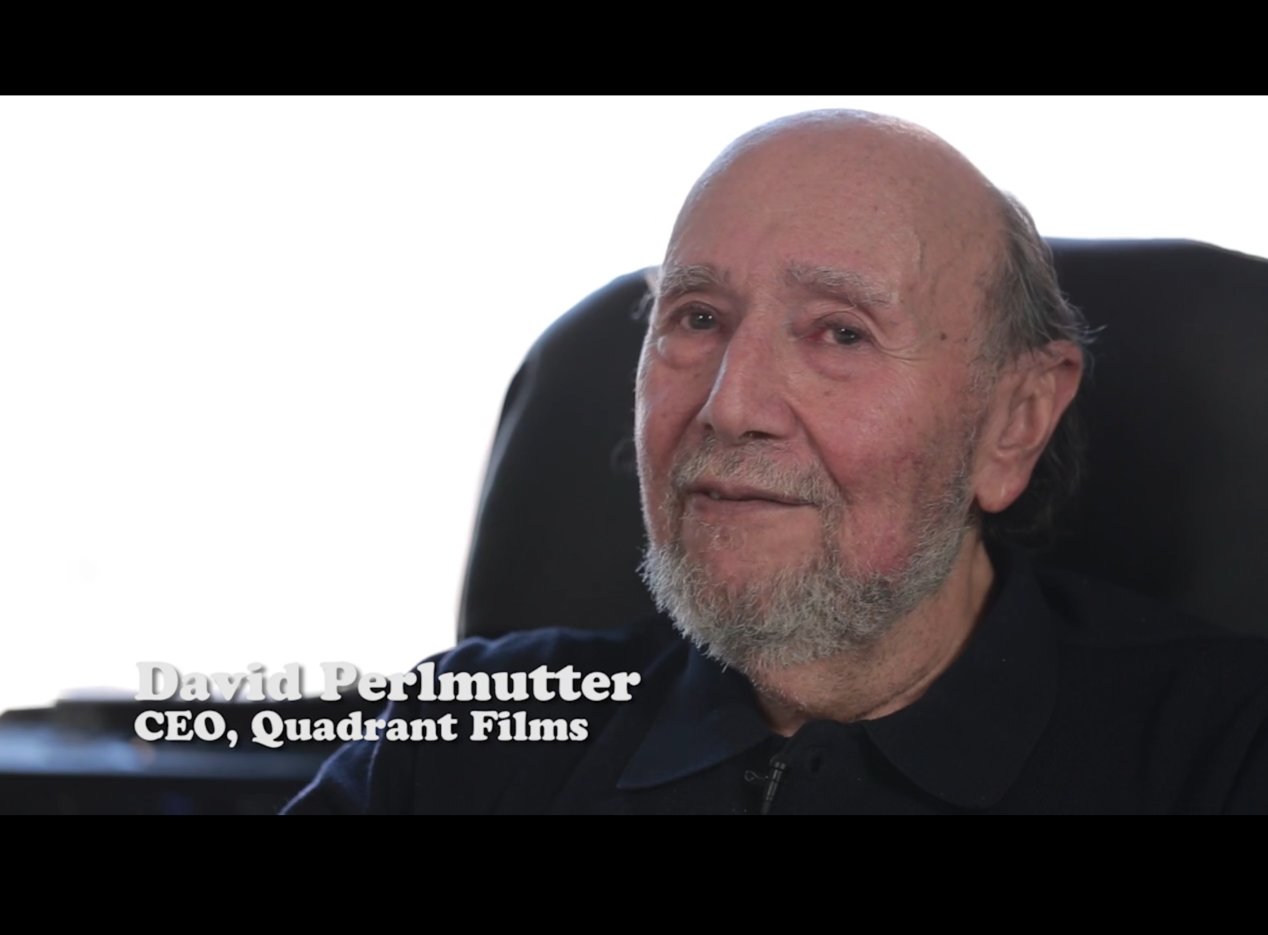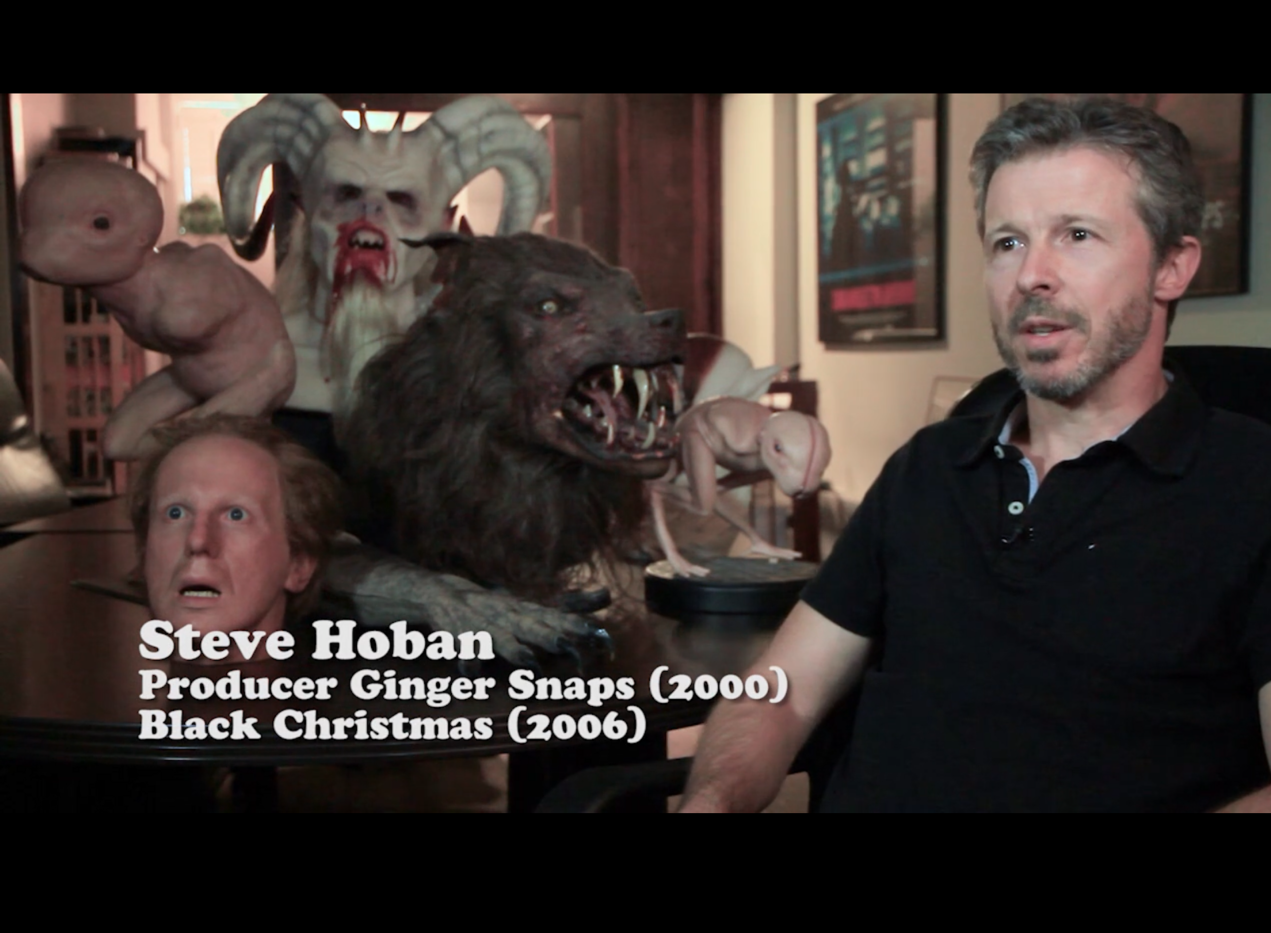PROJECT OVERVIEW
This 2016 UK/Canadian documentary is the first practice as research project to fully explore the social and historical significance of the controversial ‘tax shelter’ films that were released in Canada between 1974 and 1984. It considers both the tax shelter phenomenon (which allowed investors to deduct 100% of taxable investment in film production), and the dramatic expansion in populist Canadian cinema it prompted (including ‘body horror’ films, home invasion thrillers, ribald teen movies and regional sex comedies).
As Director/Researcher of the artefact, Professor Xavier Mendik incorporates a range of social, historical and gender-based methodologies, combining these with national cinema perspectives. One specific focus of these approaches is the Québec based producers Cinépix Inc, who released over 70 films using these state funds. The documentary interviews 18 filmmakers and historians who fully assess how Cinépix releases can be contextualised through key events in the region’s history (such as the 1970 October Crisis). The project also makes extensive use of Cinépix’s archives, seeking to create new knowledge on 1970s Canadian film via the following research questions:
- Who were the key filmmakers associated with the 1970s Canadian tax shelter phenomenon?
- How did state funding structures influence the production practices of Cinépix Films?
- Why did the iconography of the sexually liberated Quebecois female become so prominent in Cinépix releases?
- How did the emergence of countercultural protest and terrorism impact on the films Cinépix created during the 1970s?
ARTEFACT 1
Tax Shelter Terrors: The Real Story of Canadian Cult Cinema (full festival cut)
Gallery 1
The Cinépix Film Archive
Access to the Cinépix Inc Films Archive was central to the development of the Tax Shelter Terrors documentary. Cinépix Inc (AKA Cinépix) was created in 1964 by Quebec based exhibitor John Dunning and the Hungarian émigré André Link, Cinepix quickly became a key distributor within the province, and between 1964 and 1968 developed a reputation for importing European films into the region in order to gap the lack of feature film production activity in Canada at that time. Using their status as a leading distribution platform in the region, Cinépix then moved into cinema production and between 1969 and 1984 created over 70 feature film releases which were notable for fusing state funding and private investment to exploit a growing audience fascination for explicit and unconventional material. In so doing, Cinépix also mentored a new generation of filmmakers including David Cronenberg, Don Carmody, William Fruet and Ivan Reitman.
Although the company’s prolific output has largely been written out of all the leading academic accounts of Canadian national cinema because of their association with the tax shelter project, a number of significant trends were identified by an analysis of the company’s archives. These themes can be defined as follows:
- Quebecois sex comedies that reflected wider social and gender transitions occurring in the province during the late 1960s.
- Medical, military and militant home invasion/siege dramas that can be directly linked to wider 1970s terrorist fears
- Controversial authoritarian dramas, which used historical frames of reference to draw attention to the complexities of nationhood and Quebec’s status within these tense constructions.
- ‘Slasher’ films that eschewed dominant American horror film conventions to reveal more nationalistic concerns around social disenfranchisement.
- Unconventional teen dramas that were marked by a subversive attitude towards gender and sexuality.
The archival resources provided for use in the Tax Shelter Terrors documentary and also reproduced here remain the property of the Cinépix Film Archives and Greg Dunning. Further information on the archive can be found at: https://www.cinepix.ca
Gallery 2
Tax Shelter Terrors Production Diary
As part of its production process, Tax Shelter Terrors incorporated new interviews with leading filmmakers, producers and performers associated with Canadian tax shelter scheme of the 1970s. Following the wider research remit of the project, these interviews form a mode of critical reflection, which connects with wider issues of national identity, socio-cultural review and issues of gender explored in the documentary.
Interviews were arranged in 3 broad sections in the planning stage of the project:
- Tax Shelter Innovators: Filmmakers who used the tax shelter scheme to reflect the regional, social and political concerns of 1970s Canada.
- Cinépix Inc as a Tax Shelter Studio: A review of the production practices undertaken by Cinépix, and an examination of how their productions reflected wider social, political and gender tensions during the era.
- Filmmakers After the Fall: More recent Canadian filmmakers who emerged after the collapse of the tax shelter scheme, and whose representations are directly attributable to this fund.
The enclosed Production Diary captures some of interview sessions undertaken at this stage of the project.
COMMENTARY
UNDERPINNING RESEARCH
Tax Shelter Terrors (2016) is the first documentary to explore the social and historical significance of a decade of controversial Canadian films that were released between 1974 and 1984 under the so-called ‘tax shelter’ scheme. When the national government launched the Canadian Film Development Corporation in 1968 and the Capital Cost Allowance Act in 1974 it was supposed to herald a new ‘golden age’ of national cinema funded by a fusion of state subsidies and private investment.
However, the films it created ranged from body horror narratives and home invasion thrillers to ribald teen movies, all of which provoked condemnation, parliamentary critique. As a result, the tax shelter scheme and its creations have largely been excluded from all key academic accounts of Canadian national cinema. In Tax Shelter Terrors, leading filmmakers and historians evaluate this hidden Canadian film history, as well as considering how these narratives reflected wider social and political tensions occurring at the time.
Tax Shelter Terrors therefore explores the controversies created by the State sponsored funding scheme, as well as considering how productions created by the subsidy reflected wider fissures within Canadian society. A particular focus of the documentary is the output of the Quebec based production company Cinépix Inc, who became closely associated with the tax shelter scheme. Created in 1964 by John Dunning and André Link, Cinépix initially functioned as a Montreal based distributor, before producing over 70 iconic feature films between 1969 and 1984. The company also mentored a new generation of filmmakers including David Cronenberg, Don Carmody, William Fruet and Ivan Reitman. However, the populist orientations of their releases, as well as a close association to contested tax shelter scheme of the 1970s has led to Cinepix being labelled as part of ‘Canada’s great shame’ (Wright, 2012), leading to their subsequent exclusion from most scholarly accounts of national cinema.
Tax Shelter Terrors seeks to redress the current marginalization of the tax shelter scheme and the productions created by Cinépix from existing accounts of Canadian national cinema. This is achieved through a practice-as-research artefact that integrates archival analysis with insights from a range of filmmakers, commentators and historians, all of whom assessing how tax shelter outputs created by such populist producers can be linked to key events in French-Canadian history (such as the 1960s period of modernization and the 1970 terrorist tensions of the October Crisis).
PRESENTING THE ARTEFACT
The Quiet Revolution: State, Society and the Canadian Horror Film was initially commissioned by film distributor 101 Films as two related documentary productions. Part 1 of the portfolio constitutes a documentary production of 70 minutes in duration, which was distributed across the UK in July 2019 on the 101 Films Blu-ray release of David Cronenberg’s Rabid (1977). Part 2 of the portfolio constitutes a documentary production of 52 minutes in duration, which was distributed across the UK in July 2019 on the 101 Films Blu-ray release of Jennifer and Sylvia Soska’s remake of Rabid (2019).
The positive critical appraisal of the UK wide release led to Professor Mendik to create a 2020 festival cut of The Quiet Revolution. This edition was targeted at international festival exhibition and was premiered at a range of international conferences and film festivals across the UK and Ireland, Europe, USA and Canada. A contextual introduction situating the documentary in light of wider research in the field was provided to each of these exhibitions.
THE RECEPTION
Since its 2016 release, Tax Shelter Terrors has been screened at a range of international conferences and film festivals including:
- Horrorama Film Festival October 2016, Canada
- Cine-Excess International Film Festival, November 2016, UK
- Night of Horror International Film Festival December 2016, Australia (Director’s Choice Award)
- An Isolated Culture of Terror Symposium, April 2017, UK
- Sitges International Film Festival, October 2017, Spain
- BAFTSS Annual Film and Television Studies Conference, April 2018, UK
The documentary also generated the following positive press coverage:
http://screen-space.squarespace.com/horror/2017/9/15/sitges-bound-doc-honours-canadas-horror-film-forefathers.html http://www.anightofhorror.com/news/2016/12/13/a-night-of-horror-fantastic-planet-2016-winners
SUBSEQUENT RESEARCH
Following the completion of the Tax Shelter Terrors documentary, subsequent research on the topic was developed for publication in the Xavier Mendik and Julian Petley (eds) volume Shocking Cinema of the Seventies (Bloomsbury, 2020). This further charted the controversies surrounding the tax shelter scheme, and the wider significance of companies (such as Cinépix) who developed prominent genre productions using the scheme. A further subsequent research project was the 2020 documentary The Quiet Revolution: State, Society and the Canadian Horror Film, which drew on work established in Tax Shelter Terrors: https://www.researchcatalogue.net/view/1167974/1167975.
LINK TO CHAPTER
TAX SHELTER TERRORS: CINÉPIX AND THE HIDDEN HISTORY OF 1970S CANADIAN HORROR CINEMA
AWARDS


















